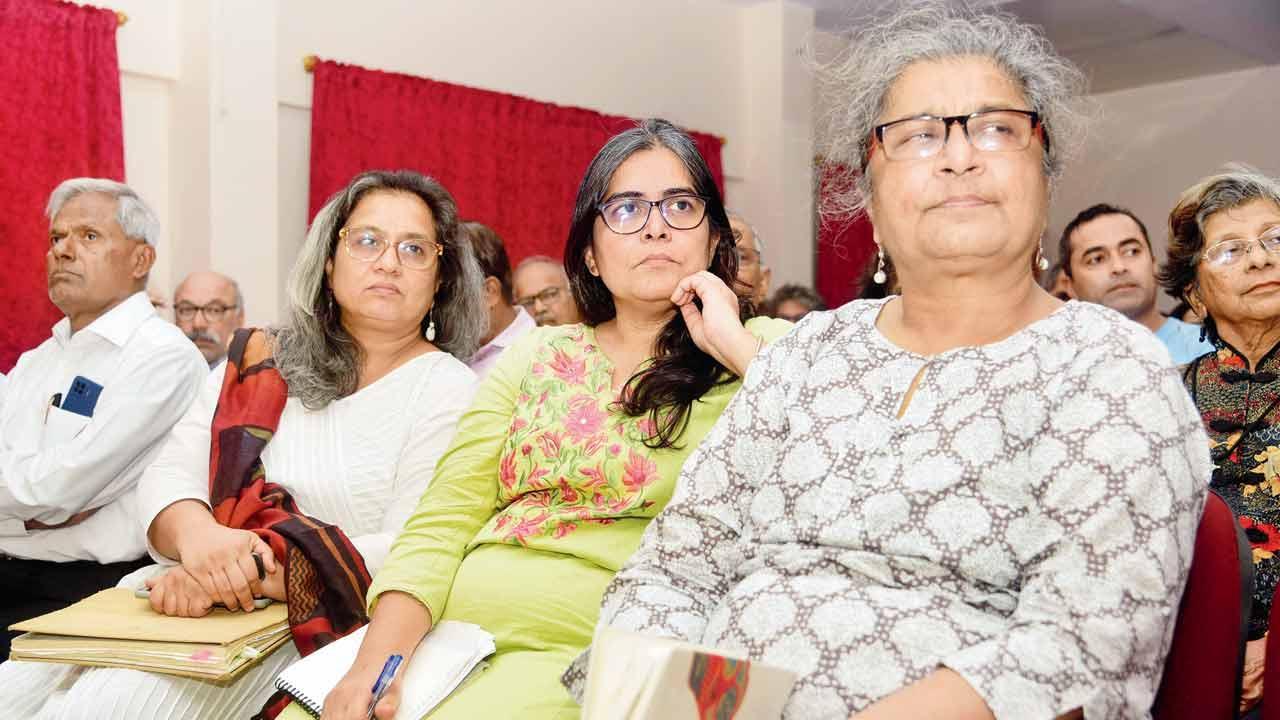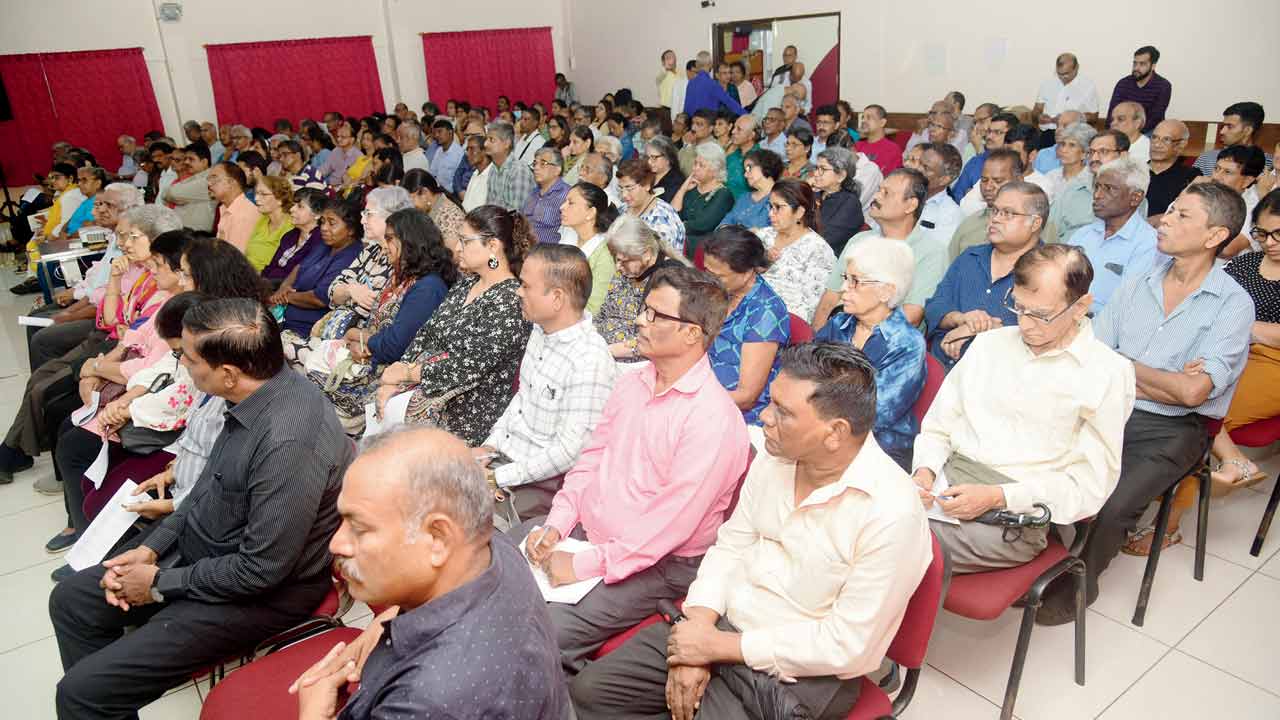Large-scale suspicion about intent and content at a meet about equality and the Uniform Civil Code

Veena Gowda, Sabah Khan and Chayanika Shah at the meet. Pics/Atul Kamble
Is a Uniform Civil Code (UCC) necessary for gender justice? Apparently not, was the answer from speakers at a meet on the same subject at Morello Hall, Holy Family Hospital, Bandra West on Wednesday, July 12 evening. The meeting was organised by the Bombay Catholic Sabha (BCS) and Justice Coalition of Religious-West India.
ADVERTISEMENT
A weapon
The first speaker Chayanika Shah, queer feminist researcher and activist, encapsulated the history of the UCC. Shah, in her criticism of the present government, stated that, “those that seek the imposition of UCC do not really believe in gender justice. They want to use it as a weapon.” She added, “Minority community women have been asking for reforms for years within.” For Shah it was not, “the UCC that is all-important but recourse to justice. Nobody should feel excluded or find it difficult to access the justice system.”
 The audience listens as speakers cite arguments
The audience listens as speakers cite arguments
Veena Gowda, advocate and women’s rights activist, stated, “We are talking about UCC without knowing what the Code is.” For the advocate, laws are one thing and lived reality is another. Gowda explained, “Several women, for instance, know that divorce is not looked on favourably, though there are laws. In many cases women are discouraged to leave even when there may be violence.” She said here, “you are still privileging the institution over the individual. We are still unable to say that marriage is a dissolvable institution. Simply bringing in the UCC may not ensure gender justice.”
The prism
As the audience listened, there was Sabah Khan, activist, who said, “When we do not engage with those outside, it is so easy to see the other as evil.” Khan added that though the UCC proponents said is about gender justice, many feel that the card is being played, “to teach the community a lesson,” said Khan. She also stressed about, “not demonising any particular religion,” and added we, “do need gender justice. Our response to the proposed UCC should be that we do not trust the motive.”
Albertina Almeida, an advocate, weighed in from Goa. The media was roasted in the interactive session following the meet, with a speaker and an audience member claiming that the media is unable to, “speak at all,” within the hail of questions and answers. The speakers also concurred that laws were one thing but implementation quite another, and mindsets needed to change.
All stakeholders
The UCC, though, has its supporters. There is Vishwa Hindu Parishad (VHP) Secretary General Milind Parande who said, “Our country is governed by common laws when it comes to criminal law, etc, so why can’t we have common family laws too?”
Dismissing the perception that the UCC is being weaponised to target a particular community or to teach them a lesson, he stated, “There are laws that violate equality and dignity of women. We have polygamy, the succession law in certain communities which is centuries behind in modern thinking and the UCC can right these wrongs.” Parande asserted, “There are certain good traditions in every single community. That has to be taken into consideration and account when formulating the UCC.”
When asked about perceptions that the UCC is being pushed as a political vote-getting exercise or stunt pre-2024 elections, Parande said, “In our country, so many elections take place throughout so any decision taken or proposed can be linked to the polls.”
July 12
Day the meet on Uniform Civic Code was held
 Subscribe today by clicking the link and stay updated with the latest news!" Click here!
Subscribe today by clicking the link and stay updated with the latest news!" Click here!







